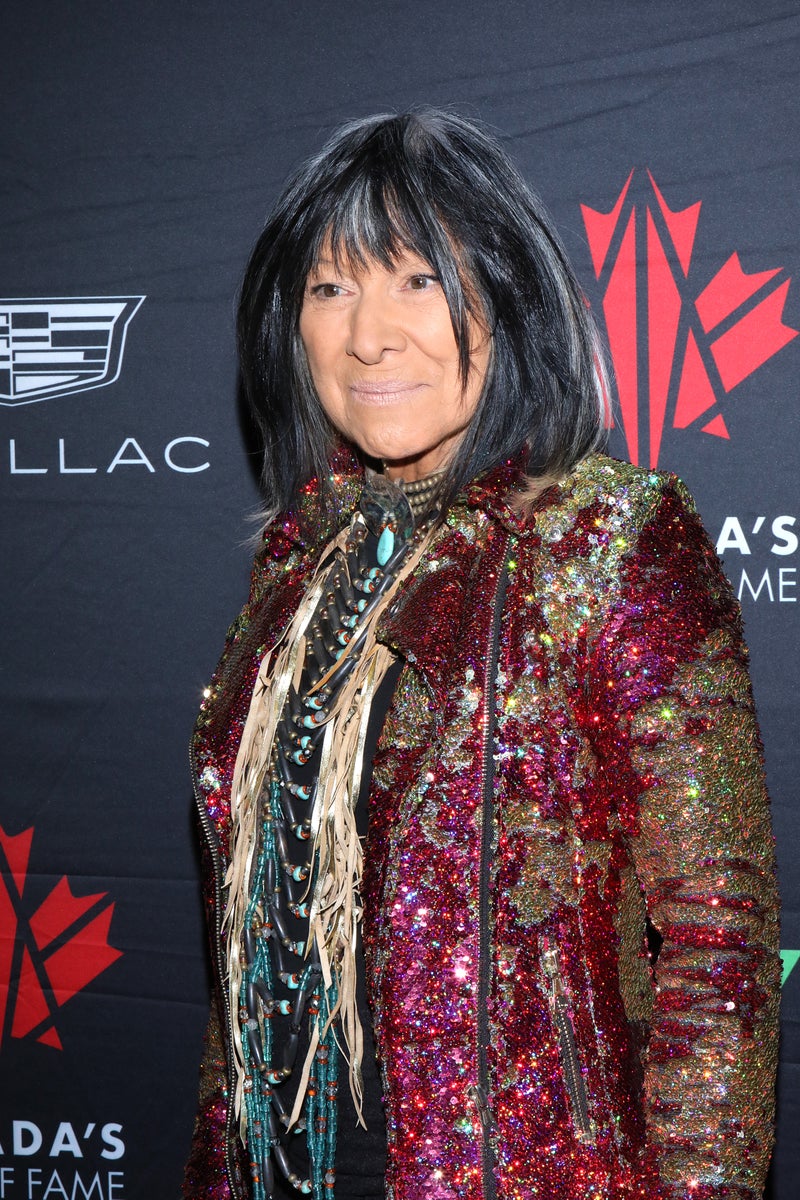‘Universal Soldier’ singer addressed ‘hurtful allegations’ questioning her claims of Indigenous ancestry in 2023. The Canadian government has stripped Oscar-winning songwriter-singer Buffy Sainte-Marie of her Order of Canada, one of the country’s highest civilian honours. Sainte-Marie, 83, best known for her 1964 anti-war anthem “Universal Soldier” and for co-writing the Oscar-winning song “Up Where We Belong”, was awarded the Order of Canada in 1997 for her services to Indigenous Canadians.
![[Buffy Sainte-Marie performs onstage at the 14th annual Americana Music Association Honors, 2015]](https://static.independent.co.uk/2025/02/09/16/44/buffy2.jpeg)
In a notice given by Ken MacKillop, Secretary General of the Order of Canada and Governor General Mary Simon, Sainte-Marie’s order was terminated on 3 January. No reason for the termination was stated, but it is understood that terminations are rare – it has only happened to nine people before – and it requires evidence from an advisory council to be signed off. The termination comes after a journalistic investigation conducted by the Canadian Broadcasting Corporation (CBC) alleged that the singer had fabricated claims of her Indigenous ancestry.
![[Buffy Sainte-Marie pictured in 2017]](https://static.independent.co.uk/2025/02/09/16/11/buffy3.jpeg)
While the singer has long been honest about not knowing specific details about her roots, she has identified as being from the Piapot Cree First Nations Reserve in Qu’Appelle Valley, Saskatchewan. Her 2018 biography also states she was likely born Cree, while her website stated that she was “believed to have been born in 1941 on the Piapot First Nation reserve in Saskatchewan and taken from her biological parents when she was an infant”.
A CBC investigation broadcast in 2023 shed doubt on the singer’s claims of Indigenous ancestry, alleging that Sainte-Marie fabricated her Indigeneity, and presented a birth certificate shown on camera that claimed she was born Beverly Jean Santamaria, in Massachusetts, to white parents. Sainte-Marie defended herself in a video statement at the time, saying: “My growing up mom, who was proud to be part Mi'kmaq, told me many things, including that I was adopted and that I was native.”.
“ And later in life, as an adult, she also told me some things that I've never shared out of respect for her. That I hate sharing now, including that I may have been born on the wrong side of the blanket.”. Sainte-Marie has frequently said she does not know where she was born and does not have her birth certificate, but was adopted by the Santamaria’s in America. “I don't know where I'm from, who my birth parents are, or how I ended up a misfit in a typical white, Christian, New England town,” she said.
Piapot First Nation acting Chief Ira Lavallee asked her to take a DNA test in 2023, but it’s uncertain whether a test was taken. In October 2023, Sainte-Marie issued a statement online with the headline, “My Truth as I Know It,” calling the questions surrounding her heritage “deeply hurtful allegations”. “I have always struggled to answer questions [about] who I am,” she said, adding that she maintains that she is “proud of my Indigenous-American identity, and the deep ties I have to Canada and my Piapot family”.
“What I know about my Indigenous ancestry I learned from my mother,” she added. “I may not known where I was born, but I know who I am.”. The Order of Canada has been given to more than 7,600 people, and is awarded to those who make extraordinary contributions to the nation. Sainte-Marie has won seven Juno Awards – the country’s equivalent of a Grammy – including 1997’s Best Music of Aboriginal Canada Recording, as it was called then, as well as 2009’s Aboriginal Recording of the Year and 2016’s Aboriginal Album of the Year and 2018’s Indigenous Music Album of the Year.






















